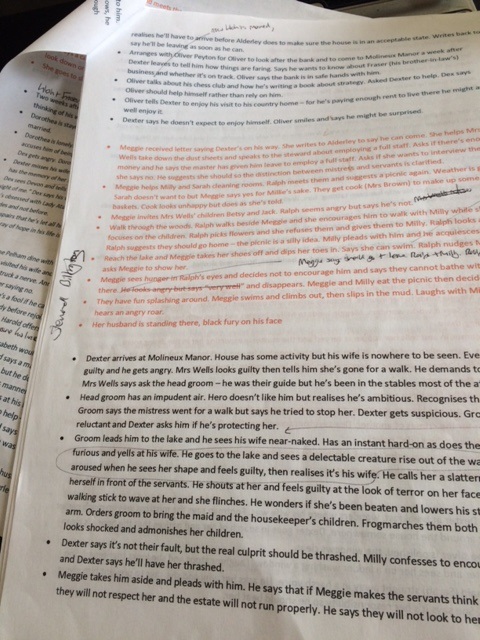OK, that’s a bit of an exaggeration, but before you throw your hands up in disbelief, let me clarify. I’m a big fan of NaNoWriMo, the month-long worldwide writing marathon. The key objective is to “write a novel in a month.” In reality, the target is 50,000 words in a month, which, in many cases, amounts to a novel. My first drafts weigh in around 100,000-120,000 words, and the finished products edit down to 75,000-90,000.

So in reality, the title should be “how I wrote approximately half of a first draft in a week”. But that’s not very catchy, is it?
For those of you who like your numbers, the wordcount I managed to amass last week was 51,118. This got me to the end of the first draft which weighed in at a little over 102,000 words. I have never, ever, managed to get anywhere near that sort of wordcount before, in such a short space of time, so it was cause for celebration. Usually, when I’ve taken a week off to focus on writing, I’ve managed 20,000 words, at most.
So how did I do it? What was so different about last week? There was no magic formula. In that respect, it’s very much like dieting, when you see someone who’s managed to shed several kilos and wonder how they did it. Basically, they either ate less, moved more, or some combination of the two. So you could say that for last week, I opened up the laptop, typed 50,000 words until I wrote “the end,” and shut the laptop down again.
But, last week was a kind of “perfect storm.” A lot of different factors combined to propel and encourage me forward, and I share these with you now.
1 Set aside the time
This might sound obvious, but as I work full-time in a job which, if anything, has got busier since lockdown, I took a week off work and earmarked it exclusively for writing. Having a husband and two teenagers (plus a dog, fourteen snakes, and other pets including chickens, hamsters and rats), I also set down the rules very clearly ahead of the week, so they all knew this was my time.
Tip 1: Make time for yourself. It’s Ok to be selfish for a week
2 Resist the e:mails
I set up autoreplies on all my main e:mail accounts. And I forced myself to avoid the temptation to check “just in case.” I took a week off earlier this year and it was, quite frankly, a disaster. I made the fatal errors of a) responding to an e:mail early in the week and b) not e:mailing contacts ahead of the week to say I wouldn’t be reading e:mails. This led to an expectation that (particularly during lockdown when the world is all at home) I was at the disposal of anyone who wanted to contact me. So, people hounded me with direct messages on social media asking whether I was checking e:mails.
Tip 2: Ignore e:mails and messages and forewarn the world you’re going to ignore them! The world won’t stop turning if you’re quiet for a few days
3 Exercise
My body has never been built for exercise. Well, it probably was once, but I like food too much. A few weeks into lockdown, I made the mistake of checking the scales. So I started the Couch to 5k program with my eldest daughter. This forced me to get up much earlier in the morning than I usually would (I’m an antisocial creature, so prefer to run when there’s nobody else about), and I was astonished to learn that post-run euphoria isn’t a myth. It exists. So, this meant I had more time for writing when I would have been lolling about in bed, and I came back from the run with a “yes I can” attitude.
Tip 3: Get yourself some fresh air every morning

4 Pyjama days
I love lazy days, and I feel a lot less guilty about them now I’m running 3 times a week. There’s nothing more comforting than a big fluffy dressing gown and slippers. On the pyjama days I did a bit of writing sitting up in bed, on the couch, and even on the kitchen table, which provided a change of scenery from the office and dining room where I normally write.
Tip 4: Be comfortable and guilt-free (remember Tip 1: it’s Ok to be selfish for a week)
5 Achieving more than one goal
Linked to number 3, we happened, by beautiful coincidence, to finish the couch to 5k program last week. When we’d started the program, it was a struggle to run for 60 seconds. So, to complete the program with a 30-minute run was something I’d never dreamed was possible. This was an enormous confidence boost, and showed me that you can achieve a goal if you set your mind to it, even if it seems impossible at first.
Tip 5: Try another challenge as well for variety. Meeting a different goal will boost your confidence.
6 A good run-in
The week before, while still at work, I set myself a target of writing 1,000-2,000 words each evening, to make sure my writing muscles were warmed up and ready to go. A bit like a warm-up exercises before a full workout. When I overtake someone on the road, I always hang back rather than tailgate, which gives me room to get up to speed before I pull out to overtake. You can’t hit 0-60 in two seconds.
Tip 6: Write a few words a day in advance, so it’s not a shock to the system when you start to write at speed.
7 Plot out in detail
I’m a plotter, not a pantster. When the week began, I had just over 10 pages of typed-up notes in bullet point format, split into scenes and points of view. I know this doesn’t work for everyone, but I focus better if I have the whole story worked out in advance. I need to know what my destination is, or I’ll get stressed! There’s still room for manoeuvre if the characters wander off in their own direction. From past experience of plotting out, I already knew that each page of plot-notes translates to around 5,000 words on the page.
Tip 7: Plan, plan, plan!

(with colour-coded viewpoints)
8 Structured goals
Linked to number 7. I could more easily gauge how much was needed each day, because I’d written out the plot in detail. After a good session the first weekend, I then needed to work through one page of plot notes each day to finish the book by the end of the week. Had I just thought about the end, it would have felt too much of an uphill struggle. Spot the running theme, but we ran a 5k this morning and coped with it by focusing on smaller goals – making it to the farm gates, then the bridge over the stream, then the big tree by the cowshed – rather than thinking about how far we had to run in total.
Tip 8: Trick your brain into seeing your target as bitesize pieces. One day at a time
9 I wasn’t always chasing my tail
For the first weekend, I hit the ground running and clocked up a good wordcount. Because I had plot-notes written out, I could see tangible progress through the plot as I completed each scene. I needed a daily average of 5,000 words, so I started off ahead of this, keeping the running average higher than 5,000. This meant I could have a breather later on in the week, if I’d exceeded the daily target in the earlier days.
Tip 9: Front-end load your goal if you don’t like chasing your tail. You can take an “easy” day when you’ve earned it!
10 Deliberate pressure
I work best under a certain amount of pressure, though there is a fine line between being pressured and stressed!. Much of the pressure was self-imposed, but this was my first book that was incomplete and under contract. All my others have been a completed draft or a submission-ready manuscripts. This particular series was contracted on the strength of a pitch. It’s a really lovely feeling and a privileged position to be in, but also pretty scary! But, having a turn-in date specified in a publishing contract certainly focuses the mind. And I set a goal of a month earlier than this, for the first draft, to give me time for edits.
Tip 10: Find your optimum level of pressure and put yourself under it.

11 I got to see my covers!
During the week, my publisher sent me the covers for the books in the series. They’re absolutely stunning – their designer is a veritable genius – and it was a delight to see them. The design hit the brief bang on, and I was so inspired, seeing how my hero and heroine are depicted in the image. Ok, this isn’t something you can conjure up when writing, but you may be able to find inspiration from creating a mood board. If you’re independently published, you could commission your cover to coincide with when you’re planning to blitz through some words.
Tip 11: have some visual inspiration to hand
12 I broke up the writing day
I admire anyone who writes 5,000 words in one sitting, because I can’t! I can write full pelt for an hour, and have joined in wordraces with lovely author friends. Bizarrely though, this week, I didn’t hook up with anyone. I wanted to be completely focused in my own bubble. But I still broke up the writing day, and did things like cook lunch or supper when I wasn’t writing. No two days were the same, but each day, I tended to write in three or four sessions, the first being as soon as I got back from the morning run, and the last, often after midnight when the rest of the household was asleep.
Tip 12: Write little and often to achieve your daily target – especially if it’s a big target!
So there you have it – my 12 top tips on how to write a novel’s worth of words in a week! Do any of these tips resonate with you? Or do you have any other tips you’d like to share?
And now, I’m off for a nap!
Emily xxx





